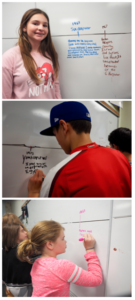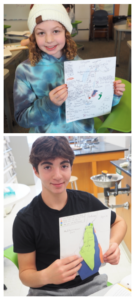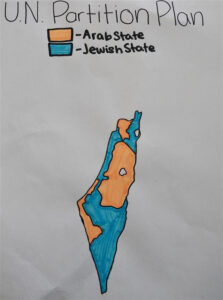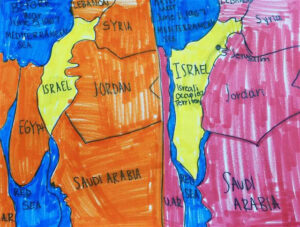In the days following October 7, the Middle School community attempted – and sometimes struggled – to process what happened through impromptu lessons and discussions. Though productive, we quickly realized these discussions only began the process of exploring and understanding. We knew we needed to make more time and space to continue.
So, to make students make sense of the war, we revised our Middle School Israel curriculum. The objective of the class is to enable Middle School students to knowledgeably and wisely track information on the current war in Israel while recognizing the important historical connections that provide broader contextual details. In other words, we are helping them learn to grasp what is happening now by researching and understanding what has happened before.
An important element of this curriculum is an emphasis on careful media literacy. In the age of social media, students will be confronted with difficult and inappropriate images, and inaccurate messaging from disreputable sources. Even the information and images shared by mainstream news outlets can be shocking and misleading. Ultimately, our goal is to help students be wise and discerning consumers of media.
 We began the trimester by establishing a working understanding for the relevant geography of Israel through the lens of cartographical art. Students engaged with the region by creating hand-drawn maps that focused on topography, major cities and settlements and historical events from 1800 to present. Each student cartographer chose a media and the data points they wished to display. (Many students earned bonus points by labeling their maps in Hebrew.)
We began the trimester by establishing a working understanding for the relevant geography of Israel through the lens of cartographical art. Students engaged with the region by creating hand-drawn maps that focused on topography, major cities and settlements and historical events from 1800 to present. Each student cartographer chose a media and the data points they wished to display. (Many students earned bonus points by labeling their maps in Hebrew.)
Next, we connected those spaces with significant moments and people in Israeli history. Each student conducted independent research on a unique topic: conflicts like the Six Day War and the Intifadas, organizations like Hagana and the PLO, and people like Yitzchak Rabin and David Ben-Gurion. Each student was challenged to connect to that project to work that we are doing concurrently in social studies where we are exploring antisemitism in France following the Franco Prussian War, the injustices of the Dreyfus Affair, and Theodor Herzl’s response to these injustices which inspired the First Zionist Conference.

Our trimester’s work will cover five thematic units with guiding questions that will set a course for what we research, learn, discuss, and debate. However much of what we do will include elements of emergent curriculum. That means some of the ideas and issues that we discuss will be borne out of the interests and inquiries of the class. We will also respond to the latest issues that we see in the news. Our trimester’s work will be a blend of prepared and planned curricula as well as inquiry based learning. It is our intention that by the end of this trimester, our middle school students will act as leaders within our broader community, able to knowledgeably advocate for Israel.

